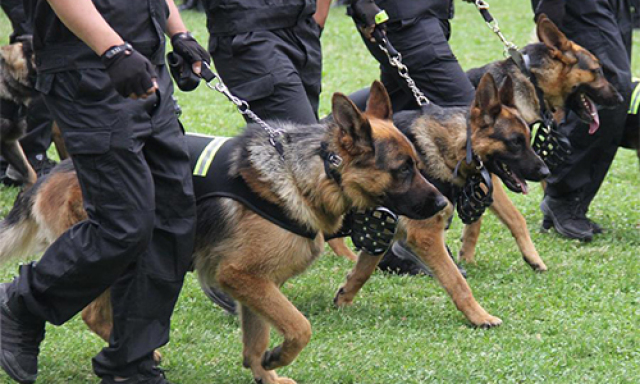Training of police dogs is a very lengthy process since it begins with the training of the canine handler. The canine handlers go through a long process of training to ensure that they will train the dog to the best of its ability. First, the canine handler has to complete the requisite police academy training and one to two years of patrol experience before becoming eligible to transfer to a specialty canine unit. This is because the experience as an officer allows prospective canine officers to gain valuable experience in law enforcement. However, having dog knowledge and / or training outside of the police academy is considered to be an asset, this could be dog obedience, crowd control, communicating effectively with animals and being approachable and personable since having a dog will draw attention from surrounding citizens.
For a dog to be considered for a police department, it must first pass a basic obedience training course. They must be able to obey the commands of their handler without hesitation. This allows the officer to have complete control over how much force the dog should use against a suspect. Dogs trained in Europe are usually given commands in the country's native language. Dogs are initially trained with this language for basic behavior, so, it is easier for the officer to learn new words/commands, rather than retraining the dog to new commands. This is contrary to the popular belief that police dogs are trained in a different language so that a suspect cannot command the dog against the officer.
Dogs used in law enforcement are trained to either be "single purpose" or "dual purpose". Single-purpose dogs are used primarily for backup, personal protection, and tracking. Dual-purpose dogs, however, are more commonly trained. Dual-purpose dogs do everything that single-purpose dogs do, and also detect either explosives or narcotics. Dogs can only be trained for one or the other because the dog cannot communicate to the officer if it found explosives or narcotics. When a narcotics dog in the United States indicates to the officer that it found something, the officer has reasonable suspicion to search whatever the dog alerted on without a warrant.

